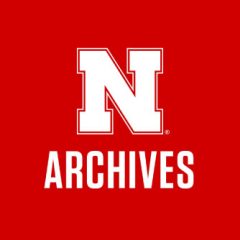Pham Xuan An, Darling Spy
Pham Xuan An, a charismatic, smooth speaking, handsome Vietnamese man, had perhaps one of the most interesting life stories that one could ever have. An cared greatly about his home nation but he also cared about the Americans and other Westerners that he worked with and grew so close to, making him a sympathetic spy. An served his country through two wars, one for independence from French Colonial forces and the second, the “American War,” the Vietnamese name for what Americans call the Vietnam War. Living as a spy, An had to carefully protect many things; including his family, his alias, his true allegiance, his own reputation, and the people he worked with and grew so close to over the years. An perfected the art of being a double agent. Many of his colleagues that worked with him had absolutely no idea about his true allegiance until well after the war. He hid his identity so well and had the Americans and other westerners so fooled into thinking his allegiance belonged to America, the CIA offered him a job, which he, of course, had to turn down. Although officially a member of the Communist Party, An still did not necessarily agree with all Communist political ideologies. An only became a member of the Party because he agreed with their pro-independence and anti-colonialism stance. After the war, An noted the pointlessness of the war as the Vietnamese simply “exchanged the Americans for the Russians.” Even to this day, larger nations may find it easy to exhort force on it against the will of the people of a small nation such as Vietnam.
Shortly after joining, the Communist Party assigned An to go to the United States and learn the customs of Americans and how they lived. An attended undergraduate classes at Orange Coast College in California where he quickly fell in love with the American culture and people. His outgoing personality quickly landed him many new friends in a county that at the time did not even have a single Vietnamese person living there other than An. An excelled in his studies and actively participated in many extra-curricular activities. He made the honor roll every semester, involved himself in several extra-curricular activities including starting several international clubs, and got a job working for the student newspaper, the Barnacle. Immediately after graduating college, the United Nations offered An an internship in New York. Opting out of flying across the country, An decided to drive across the country by himself. An continued to live and work in the US for several more months before returning home to Vietnam.
When An returned to South Vietnam he initially feared capture by authorities for his true party membership. An knew that authorities had already arrested some of his Communist comrades and his uncertainty if any of them had told authorities about An’s true loyalty worried him. An lived in fear for about a month before realizing his cover endured and now he could do work for both his Party and for his country. Although educated in journalism, An had not yet developed the art of spying. An actually got a lot of his knowledge about spying from a book given to him by a journalist colleague called Anatomy of Spying. With this book, An began his double-sided life, working for both sides of the war.
During the Vietnam War, western journalists had access to significantly more information and leads than their native Vietnamese counterparts. An knew that if he could gain the trust of a few western correspondents to get him into the valuable press briefings about the war, he could immensely help the Communist Party and the fight for an independent Vietnam. By working with a wide variety of reporters and journalists, An managed to get on the lists of several major newspapers and media outlets that allowed him to gain as much information as possible that he could then send back to Communist forces.
An’s relationships with Western correspondents were not ones carried with malice. In fact, An still loved the Americans and their culture. He did not hate Americans necessarily; he just wanted freedom for his own country from any imperial occupation as it had for so many years. An even went as far as attending a wedding for some Americans who he had met in Vietnam. An built a strong relationship with a young American journalist name Beverly Deepe Keever. An and Keever worked closely together for a long time with Keever not knowing An’s true identity until after the war, the same as every other western journalist that An worked with during the long war. Even though An deceived the people he worked with and put their trust in him; he still hoped to keep ties with them after the war, inviting any and all of them to his home in Saigon if they ever came back to Vietnam for any reason. Unlike many other journalists, Keever decided not to stay in contact with An after the war ended. Although mentioned extensively in Keever’s memoir, she never contacted An after the war. An felt hurt that he never rebuilt the burnt bridge between the two old friends. An said to his biographer one day, “I loved (Keever) so much, my children and my wife still love her. I still hope one day before I die we can reconcile, like our countries have done.” An said this with great sadness in his eyes. (Berman, 166)
Unfortunately, An and Keever never reunited. On September 20, 2006, at age 79, Pham Xuan An died of emphysema, which he contracted after his many years of smoking. Over the course of his exciting life, An made a remarkable impact on almost everyone around him. An loved his family, his country, and those he worked with.
